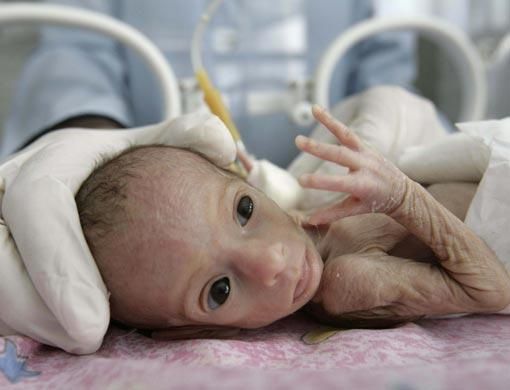Cairo: The video shows a poorly lit hospital nursery filled with premature babies in incubators. Doctors are frantically trying to resuscitate some babies while others wail in the background after a night-time power cut.
"God help us! Five are suffering from [cardiac] arrests?" a voice in the background says angrily. "We can handle one or two at most, but five?"
"This is natural, doctor. It's been an hour and a half," says another male voice, apparently referring to the length of the power cut.
A mobile phone camera caught this scene at Cairo's state-run Al Matariya Educational Hospital in late May on a night when the electricity was cut for nearly three hours after midnight and back-up generators failed to work.
Doctors at the hospital said the outage led to the deaths of four infants. The health ministry, which has referred the matter to the public prosecutor for investigation, says two babies died but that was before, rather than during, the power cut.
The video, which surfaced on YouTube and several Egyptian blogs in June, has sparked a national uproar over a health-care system suffering from a lack of funds, a long legacy of mismanagement and allegations of corruption.
For decades, the government has provided poor Egyptians with subsidised food and fuel, free education and health care.
But public spending on health care has fallen behind over the last six years, accounting for 1.3 per cent of gross domestic product in 2006, compared with 2.4 per cent in 2001, data from the United Nations report on human development in Egypt showed.
Widening gap
Robust economic growth of around 7 per cent over the last two years has swollen the ranks of Egypt's wealthy, but left millions of unskilled, poorly educated people struggling to cope with inflation running at a 19-year high.
This widening gulf between the rich and poor in the Arab world's most populous country is also visible in the health-care system.
Private hospitals offer superior care for those who can afford it - not much consolation to most in a country where one-fifth of 76 million people live on less than $1 (Dh3.67) a day.
A 2004 study by Christian Gericke of the Berlin University of Technology said poor Egyptians "pay relatively more [both out-of-pocket and through the tax system] and receive relatively less in benefits than the better-off social strata."
"There is a huge disparity in financial access to care," the study said.
Doctors at Al Matariya hospital posted the video of the power cut on a blog (www.akroot4ever.blogspot.com), along with details of what they described as "tragedies" at the hospital.
"Two babies died during the power cut. I saw them with my own eyes," a doctor, who said he was in the nursery during the power outage, said in a telephone interview.
"A third died after electricity was restored and a fourth the following day," he added. The last two deaths, he said, were a direct result of the power outage.
But Mortagi Negm, secretary-general of educational hospitals and institutions, a government department, said the power outage had no effect on the health of any baby at the nursery.
"Two babies died before the electricity went off," he said. "The law states that they must remain on the machine for two hours after death."
The Ministry of Health will spend some 12 billion Egyptian pounds ($2.24 billion) on health care this year. In comparison, the government spends nearly 80 billion on food and fuel subsidies, and spending on defence and security will be about 22 billion pounds next year.
Several doctors interviewed said government wages were too low at state-run hospitals. "The salary of a young doctor is 250 pounds ($47) a month," said Amr Abu El-Ela, a doctor at Al-Sahil hospital in Cairo.












